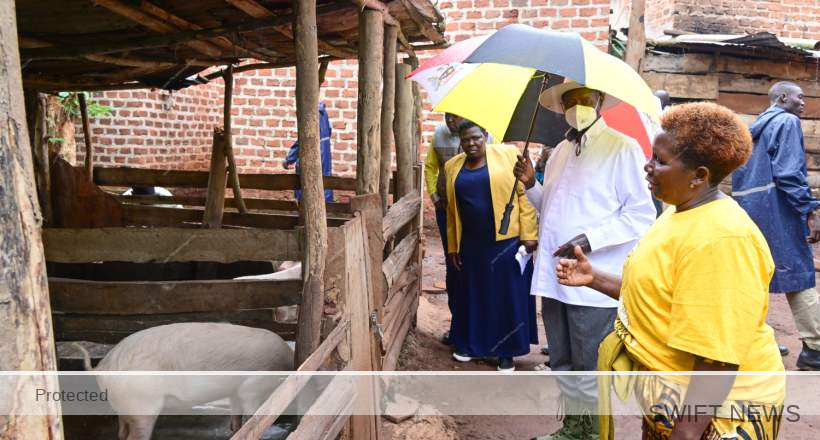
By Our Reporter
A section of lawmakers has proposed redirecting the UGX 1.08 trillion allocated to the Parish Development Model (PDM) to fund free university education for all Ugandan students, effectively ending the current private sponsorship system that they say excludes students from poor backgrounds.
The proposal was tabled by Butambala County MP, Muwanga Kivumbi, during a June 2, 2025, meeting between Parliament’s Public Accounts Committee (PAC) and officials from Makerere University. The meeting was convened to consider the December 2024 Auditor General’s report.
“Wait for the National Unity Platform manifesto—it’s coming. We will say we can provide free university education using the money we are currently pushing into PDM,” Kivumbi said. “This money could offer Ugandans free university education, leading to greater national development. Why choose PDM over university education when the impact of the latter is much more substantial? We must have this conversation as a country.”
Kivumbi’s remarks come at a time when opposition MP Ibrahim Ssemujju, in his Minority Report on the 2025/26 national budget estimates, also called for a detailed review of the PDM’s effectiveness before allocating additional funds to it.
Ssemujju cited findings from the 2024 national census, which showed that 3.5 million households—33% of Uganda’s 10.6 million households—are still trapped in the subsistence economy, the very group the PDM is intended to uplift. However, according to the Uganda Bureau of Statistics, only 832,737 households had received PDM funds by the end of 2024, accounting for just 7.8% of total households and 23% of the intended beneficiaries.
Kivumbi argued that redirecting PDM funds to finance public university education would revive the equity seen in earlier decades, when students from humble backgrounds accessed higher education through government sponsorships.
“I’m a son of a truck driver. I attended Makerere because I was given an opportunity—free of charge,” he said. “Today, even those of us who can afford are being told to pay, and peasants are being asked to do the same. If we redirect PDM funds to free university education, in 10 years we would have built a better country instead of handing out money to people who use it for malwa (local brew). I hope a future presidential candidate will champion this idea.”
Since its inception in the 2022/23 financial year, the PDM—touted by the ruling National Resistance Movement as an “economic miracle”—has seen cumulative funding of UGX 3 trillion. This includes UGX 1.142 trillion disbursed in 2022/23, UGX 1.107 trillion in 2023/24, and UGX 1.096 trillion allocated in the current 2024/25 fiscal year.
Inefficiencies In Public Universities
Meanwhile, PAC, which is currently reviewing audit reports from public universities, expressed concern over inefficiencies in their management. Makerere University became the fourth institution to be scrutinised after earlier sessions with Makerere University Business School (MUBS) and the Uganda Management Institute (UMI).
Committee members were shocked to learn that, of Makerere’s 21,831 students, only 8,000 are government-sponsored while about 12,000 pay for their education privately. With an average tuition fee of UGX 2 million per student, the university collects around UGX 50 billion in tuition annually. Yet, it operates on a total budget exceeding UGX 300 billion.
MP Kivumbi questioned why Makerere struggles with inefficiencies despite this sizeable budget, arguing that a private institution generating the same revenue would perform better.
“We need a forensic audit of all public universities,” he said. “A private university raising UGX 50 billion would run efficiently. But you [public universities] receive more—UGX 300 billion including government support—and still struggle. What’s the problem? What’s the cancer eating you up?”
He added that public universities should adopt a hybrid model that balances education as a public good with principles of accountability and efficiency.
“Education can’t be purely commercial, but neither should it be treated like a handout. If you collect UGX 100 billion from students, the government can match it and allow you to provide universal, free access to higher education. That’s how we ensure opportunity for all who qualify.”
Although Kivumbi expressed doubt about political will to implement the proposal, Makerere University’s Academic Registrar, Professor Buyinza Mukadasi, signaled the institution’s support.
“We will not resist it,” Buyinza assured the committee. “You will not resist? We will not.”

